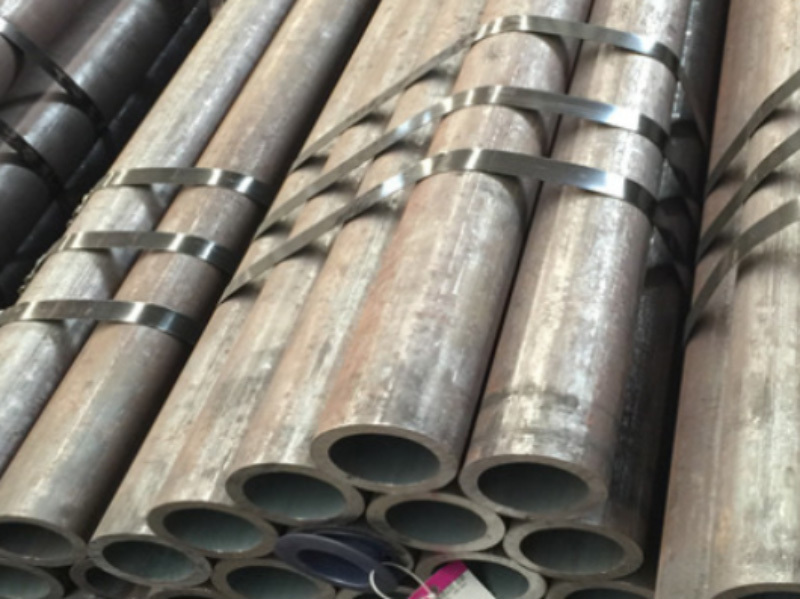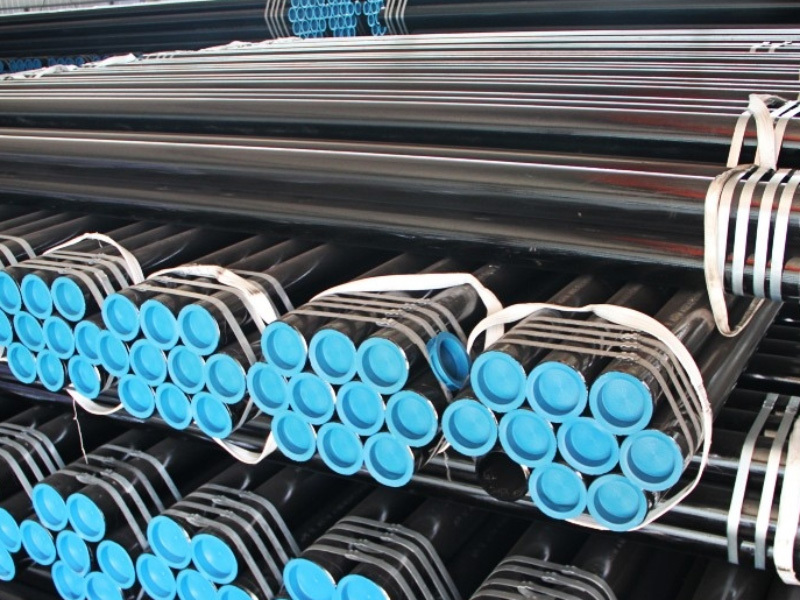Leading Smls Pipe and fittings supplier from China since 1991
Why Choose Steel Casing for Electrical Insulation Projects? A Comprehensive Guide
Why Choose Steel Casing for Electrical Insulation Projects? In today's rapidly evolving electrical industry, selecting the right materials for insulation projects is critical. One option that stands out in terms of durability and effectiveness is **steel casing**. This article delves into why steel casing is an ideal choice for electrical insulation projects, its benefits, applications, and critic
Jul 13,2025

Why Choose Steel Casing for Electrical Insulation Projects?
In today's rapidly evolving electrical industry, selecting the right materials for insulation projects is critical. One option that stands out in terms of durability and effectiveness is **steel casing**. This article delves into why steel casing is an ideal choice for electrical insulation projects, its benefits, applications, and critical considerations, helping you make informed decisions that align with your project's goals.
Table of Contents
- The Importance of Insulation in Electrical Systems
- What is Steel Casing?
- Benefits of Steel Casing for Insulation
- Applications of Steel Casing in Electrical Projects
- Steel Casing vs. Other Insulation Materials
- Considerations When Choosing Steel Casing
- Installation and Maintenance Tips
- Frequently Asked Questions
The Importance of Insulation in Electrical Systems
Insulation is a vital component of electrical systems, designed to prevent current leakage, protect against electrical shocks, and ensure the longevity of the components involved. Proper insulation not only enhances the safety of electrical installations but also improves efficiency by minimizing energy loss. Therefore, selecting the right insulation material is crucial for any electrical project.
What is Steel Casing?
**Steel casing** refers to a protective tube or cover made from steel, used to encase electrical conductors and wiring. This casing serves multiple purposes, including providing mechanical protection, enhancing electrical insulation, and offering resistance against environmental hazards. Steel is a robust material, making it an excellent choice for applications where durability and safety are paramount.
Benefits of Steel Casing for Insulation
Choosing steel casing for electrical insulation projects offers numerous advantages:
1. Exceptional Durability
Steel casing is renowned for its strength and durability. It can withstand extreme environmental conditions, including high temperatures, moisture, and physical impacts. This durability translates to a longer lifespan for your electrical installations, reducing the need for frequent replacements or repairs.
2. Superior Protection Against Electromagnetic Interference (EMI)
One of the critical functions of steel casing is its ability to shield electrical conductors from electromagnetic interference. This is particularly beneficial in environments where sensitive equipment operates, as it minimizes the risk of signal degradation.
3. Resistance to Corrosion
Steel casings can be treated with anti-corrosive coatings to enhance their resistance to environmental factors. This feature is especially important in outdoor installations or areas prone to moisture, ensuring the integrity of electrical systems over time.
4. Enhanced Fire Safety
Steel has a high melting point, making it inherently fire-resistant. In the event of an electrical fault, steel casing can help contain fires and prevent them from spreading, providing an additional layer of safety for electrical installations.
5. Cost-Effectiveness
While the initial investment for steel casing may be higher compared to other materials, its durability and low maintenance requirements make it a cost-effective solution in the long run. Fewer replacements and repairs mean reduced overall costs for electrical projects.
Applications of Steel Casing in Electrical Projects
Steel casing finds applications across various sectors, including:
1. Commercial and Industrial Installations
In commercial and industrial settings, steel casing is often used to protect electrical wiring and conduits from damage caused by heavy machinery or adverse environmental conditions.
2. High-Voltage Systems
For high-voltage electrical systems, the robustness of steel casing provides necessary insulation and protection, ensuring safe operation and reducing the risk of electrical failures.
3. Underground Cabling
When burying electrical cables underground, steel casing serves as an effective barrier against moisture, soil movement, and other potential hazards, safeguarding the conductors inside.
4. Renewable Energy Systems
In renewable energy applications, such as solar panel installations, steel casing can protect wiring from environmental factors, ensuring the longevity and efficiency of the systems.
Steel Casing vs. Other Insulation Materials
When comparing steel casing to alternative materials, several factors come into play:
1. Versus PVC Casing
While PVC casing is lightweight and resistant to corrosion, it lacks the mechanical strength and fire resistance offered by steel casing. For applications requiring higher durability, steel is the preferred choice.
2. Versus Rubber Insulation
Rubber insulation provides excellent flexibility and electrical insulation but may not offer the same level of mechanical protection as steel casing. Steel is more suitable for environments where impacts are a concern.
3. Versus Fiberglass
Fiberglass offers good insulation properties, but it can be prone to wear and tear over time. Steel casing provides superior durability and protection for long-term installations.
Considerations When Choosing Steel Casing
When opting for steel casing, consider the following factors to ensure optimal performance:
1. Type of Steel
Different types of steel, such as stainless steel or carbon steel, offer varying levels of corrosion resistance and strength. Choose the type that best suits your project's needs.
2. Thickness and Diameter
The thickness and diameter of the steel casing should be appropriate for the specific application and the electrical conductors being protected. Consult industry standards for guidance.
3. Coating Options
Consider the environmental conditions in which the steel casing will be used. Coatings can enhance resistance to corrosion and other environmental factors.
4. Compliance with Industry Standards
Ensure that the chosen steel casing meets relevant industry safety and performance standards to guarantee reliability and safety in your electrical systems.
Installation and Maintenance Tips
Proper installation and maintenance are crucial to maximizing the benefits of steel casing:
1. Professional Installation
Engage qualified professionals for installation to ensure that all safety standards and best practices are followed.
2. Regular Inspections
Perform regular inspections of the steel casing to check for signs of wear, corrosion, or damage. Timely maintenance can prevent more significant issues later on.
3. Cleaning
Keep the steel casing clean and free from debris, especially in areas prone to moisture accumulation, to prevent corrosion and maintain its protective qualities.
4. Documentation
Maintain thorough records of installation and maintenance activities. This documentation can be useful for future reference and compliance with industry standards.
Frequently Asked Questions
1. What are the primary advantages of steel casing?
Steel casing offers exceptional durability, protection against electromagnetic interference, fire resistance, and cost-effectiveness due to its long lifespan.
2. Is steel casing suitable for all types of electrical installations?
While steel casing is highly versatile, its suitability depends on specific project requirements, including environmental conditions and safety standards.
3. How do I maintain my steel casing?
Regular inspections, cleaning, and addressing any signs of wear or corrosion can help maintain the integrity and performance of steel casing.
4. Can steel casing be used in high-voltage applications?
Yes, steel casing is particularly beneficial in high-voltage applications due to its strength and ability to provide reliable insulation and protection.
5. What should I consider when selecting steel casing?
Consider factors such as the type of steel, thickness and diameter, coating options, and compliance with industry standards when selecting steel casing for your project.
Conclusion
In summary, choosing steel casing for electrical insulation projects offers a myriad of benefits, including durability, protection against electromagnetic interference, and enhanced fire safety. Its application across various sectors highlights its versatility and reliability. By considering the factors outlined in this guide and adhering to best practices for installation and maintenance, you can ensure a safer and more efficient electrical system that meets industry standards. Embracing steel casing not only fortifies your electrical installations but also contributes to long-term cost savings and performance stability.
Hot Tags:
PREVIOUS:






